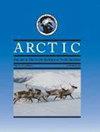记录土著知识以识别和理解加拿大努纳武特的麝香牛(Ovibos moschatus)的压力源
IF 0.8
4区 地球科学
Q4 ENVIRONMENTAL SCIENCES
引用次数: 3
摘要
土著知识提供了有关野生动物健康和生态学的宝贵信息,有助于更广泛地了解所观察到的模式和现象。麝香牛(Ovibos moschatus)是北极因纽特人社区生存和文化的重要物种,越来越多地受到与快速气候变化和其他人为变化有关的各种压力。识别和了解这些压力源及其对火牛的影响将为管理、健康监测和未来的研究提供信息。为了实现这一理解,我们通过七次半结构化的小组访谈记录了土著知识,每次访谈都涉及加拿大努纳武特库格鲁克图的两到三台特意选择的火牛收割机,以(1)确定健康火牛的特征,(2)确定被认为影响火牛的因素,以及(3)从土著知识的角度理解,对麝香头发中糖皮质激素(在访谈中被称为“应激激素”)的性别、季节和年度模式的研究结果。关键成果包括:(1)对火牛健康及其所包含的内容有了更全面的了解;(2)认识和探索参与者围绕变化世界中影响火牛的因素表达的丰富的“一个健康”观点,并强调了多种社会生态联系,影响它们的各种因素及其相互关系。这项研究代表着在积极让社区参与研究的各个步骤的过程中取得了有意义的进展,并强调了土著知识可以为复杂的野生动物内分泌学研究领域做出的重要贡献。本文章由计算机程序翻译,如有差异,请以英文原文为准。
Documenting Indigenous Knowledge to Identify and Understand the Stressors of Muskoxen (Ovibos moschatus) in Nunavut, Canada
Indigenous knowledge provides valuable information on wildlife health and ecology, contributing to a broader understanding of the patterns and phenomena observed. Muskoxen (Ovibos moschatus), an important species for the subsistence and culture of Inuit communities in the Arctic, are increasingly exposed to diverse stressors linked to rapid climate change and other anthropogenic changes. Identifying and understanding these stressors and their impacts on muskoxen will inform management, health monitoring, and future research. To achieve this understanding, we documented Indigenous knowledge through seven semi-structured small group interviews, each involving two to three purposely chosen muskox harvesters in Kugluktuk, Nunavut, Canada to (1) establish the characteristics of healthy muskoxen, (2) determine the factors considered to impact muskoxen, and (3) understand, from an Indigenous knowledge perspective, the results from a study on the sex, seasonal, and annual patterns of glucocorticoids (described as “stress hormones” for the purposes of the interviews) in muskox hair. Key outcomes include (1) a more holistic understanding of muskox health and what it encompasses, (2) recognition and exploration of a rich One Health perspective expressed by participants around factors influencing muskoxen in a changing world and highlighting the multiple socioecological connections, and (3) a broader comprehension of the glucocorticoid (stress) patterns measured in muskox hair, the various factors that influence them, and their interrelations. This study represents a meaningful advancement in the process of actively involving communities at all steps of the research and highlights the important contributions Indigenous knowledge can offer to the complex field of wildlife endocrinology research.
求助全文
通过发布文献求助,成功后即可免费获取论文全文。
去求助
来源期刊

Arctic
地学-环境科学
CiteScore
2.30
自引率
0.00%
发文量
51
审稿时长
6-12 weeks
期刊介绍:
Arctic is a peer-reviewed, primary research journal that publishes the results of scientific research
from all areas of Arctic scholarship. Original scholarly papers in the physical, social, and biological
sciences, humanities, engineering, and technology are included, as are book reviews,
commentaries, letters to the editor, and profiles of significant people, places, or events of northern
interest
 求助内容:
求助内容: 应助结果提醒方式:
应助结果提醒方式:


